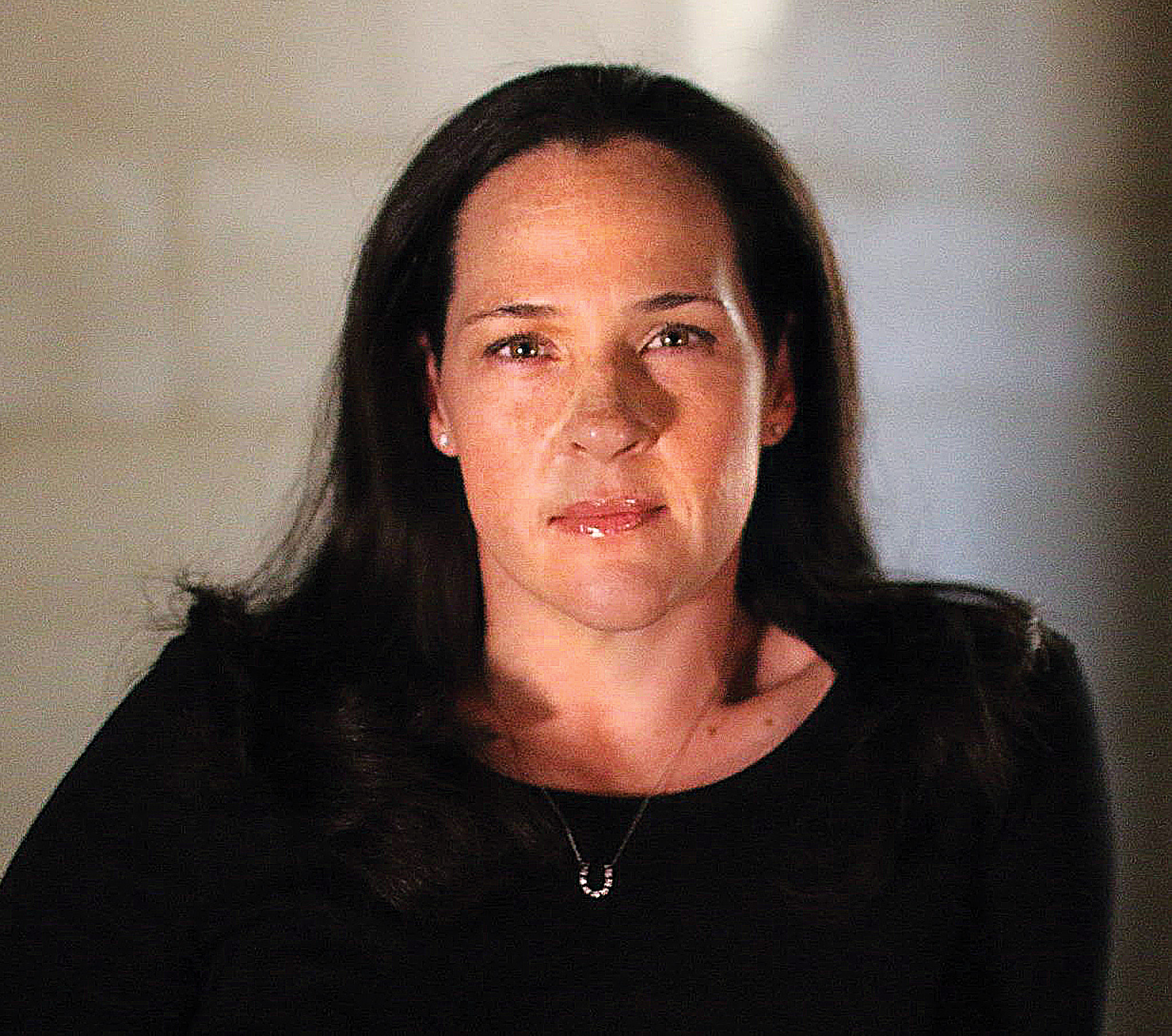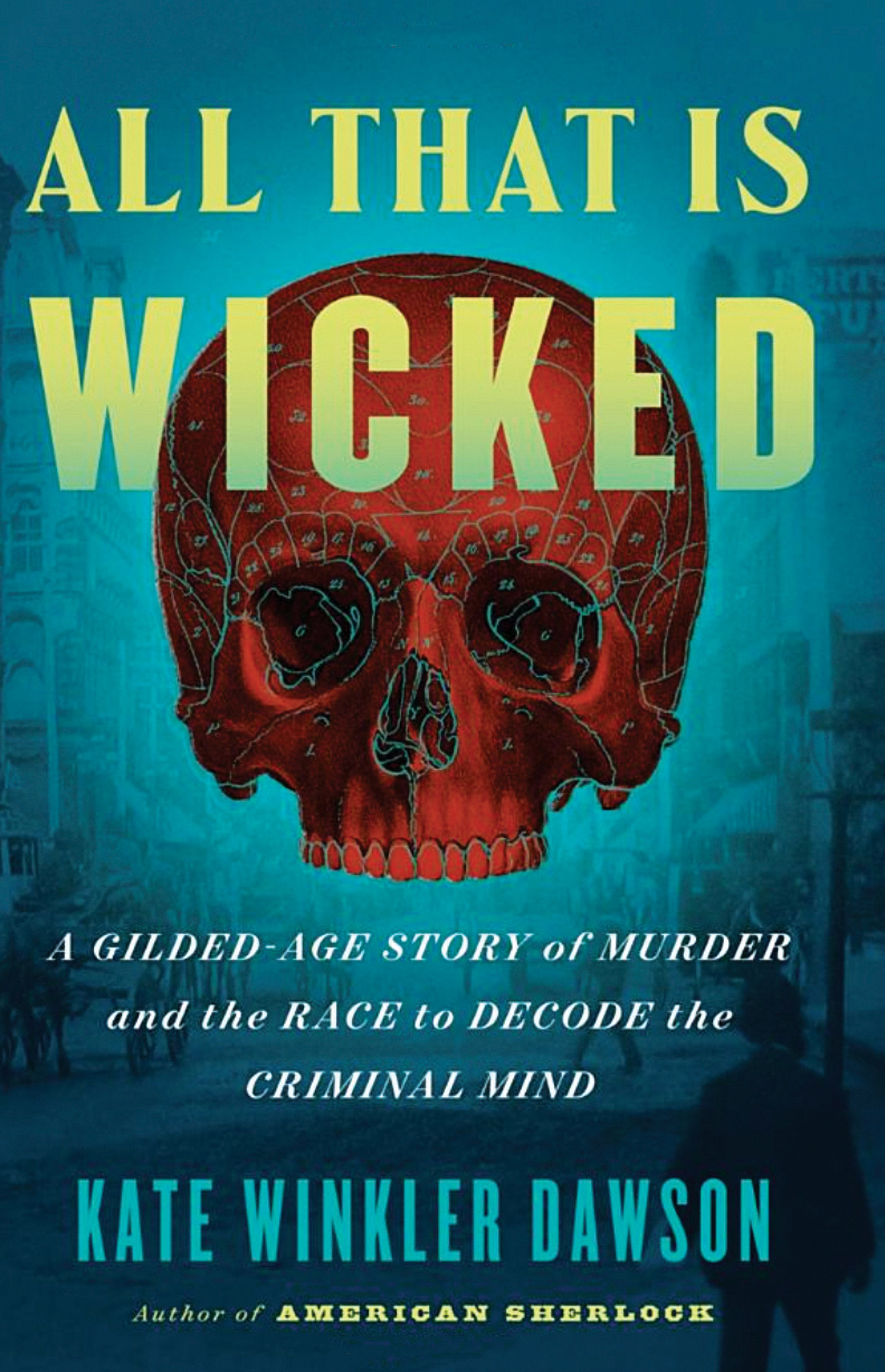Q&A: Journalism Professor Kate Dawson Is Truly a True Crime Historian

If you haven’t heard Kate Winkler Dawson’s voice before, you probably will soon.
Maybe you listened to the audiobook version of her most recent book, American Sherlock, or more likely to one of her podcasts, such as Tenfold More Wicked and Wicked Words, where she recounts historical true crime stories, sometimes interviewing journalists and writers about the cases they’ve covered. She’s also the co-host of the podcast Buried Bones alongside retired homicide investigator Paul Holes, where the duo examines historical true crime cases through a 21st-century lens.
Dawson, an associate professor of practice in UT’s School of Journalism and Media, is a true crime historian through and through. Her new book, All That Is Wicked, out Oct. 4 from Penguin Random House, takes a look at another historical true crime story: the life of Edward Rulloff, a massively intelligent serial murderer whose brain scientists examined closely after his death.
The Alcalde visited with Dawson to find out why she found Rulloff’s life fascinating enough to examine both in her new book and in the first season of Tenfold More Wicked.
Tell us a little bit about this book.
It’s a look back at the beginning of when we started exploring the criminal mind and why people do what they do—what makes someone who is seemingly normal, intelligent, and charming also have the capability of being a killer. [Because of] the Netflix series Mindhunter, [a lot of us] think that the Behavioral Science Unit at the FBI in the ’70s was really the beginning of that, the group of men and women who went into prisons and were interviewing [Ted] Bundy and [Ed] Kemper and all these serial killers to gather information about the criminal mind. But that’s not the beginning. The beginning really was 100 years earlier, when Edward Rulloff, who was this genius in linguistics and someone who was valued for his intellect in society, was also just a terrible person and killed young people—and killed his own daughter and wife. And when he is shackled to the floor of a jail awaiting execution, there’s a series of men who go in from all different disciplines and try to figure out what is wrong with this guy.

How did this story come about? Did you do the season of the podcast first and then turn it into a book?
It was actually the other way around, which is surprising. It was a full book proposal. I had done two years of research on it, and I presented it to my editor. It was really Edward Rulloff’s story, the arc of his life. But we were trying to find the right hook. So, I gave up on it. And when I started to think about doing the podcast, I had this little folder on my desktop that’s failed book ideas, and I just thought the first two seasons should be two failed books. One was Edward Rulloff’s story. And so, then the show turned out to be a big hit the first season. And I started really thinking about Rulloff being shackled to the floor, and I had watched Mindhunter. And I thought, man, this is not the first time people have tried to figure someone like Edward Rulloff out. And so that’s when I kind of started crafting the story a little bit better.
What was it like for you spending that much time with this man and his story?
It’s a lot of Edward Rulloff. But he was very important. His brain was the first brain to be purchased in the first brain museum in the country, which sounds like a bizarre concept now. But when they started, these neurologists in the late 19th century began purchasing brains to compare to other brains. This was the beginning of neurology in the United States. It was comparative anatomy. That a criminal’s brain structurally might not be any different than somebody else’s brain, including a well-known philosopher, it was a really big deal. And so every time I get sick of Edward Rulloff and his rantings about linguistics, and all of his 19th-century flowery language, and then some of the very mean things he said and did, along with his really interesting writing, every time I think about all of that, and how overwhelming it has been to live with that for five or six years going on ... I think it’s important to know that someone like Edward Rulloff could make an impact on the world, and he predicted he would. But this was certainly not the impact he thought he was going to have, that his brain was going to end up on display at Cornell University. That’s certainly not what he thought his fate was going to be.
So, why true crime?
My father was a law professor at The University of Texas for 37 years before he died. And my mother was a clinical psychologist, and she is a huge, huge fan of true crime. She just always has been. The bookcases in my parents’ house … It’s been the same books in the same bookcases for my entire life. And it’s like, The Alienist, In Cold Blood, and books about [Jeffrey] Dahmer. I grew up with that. I mean, every terrible subject you can think of. There was no Jane Austen on our bookshelf. Then I was in journalism, and I did a lot of crime reporting. I had to follow the Chandra Levy story, which happened in 2001. And so, I did a lot of deep dives on a lot of different stories that involve crime.
This interview has been edited and condensed.
CREDIT: Paepin Goff





